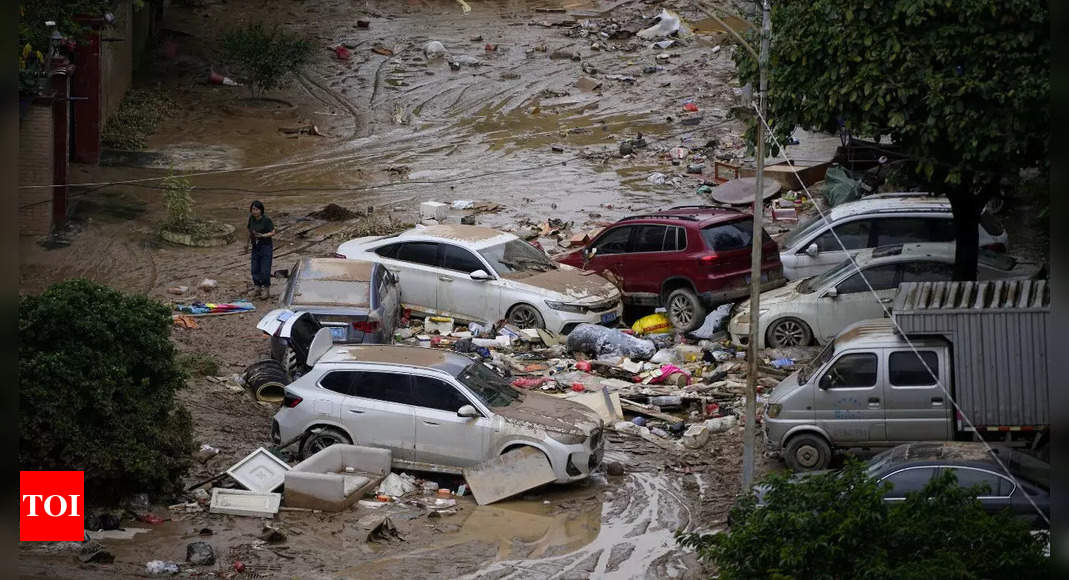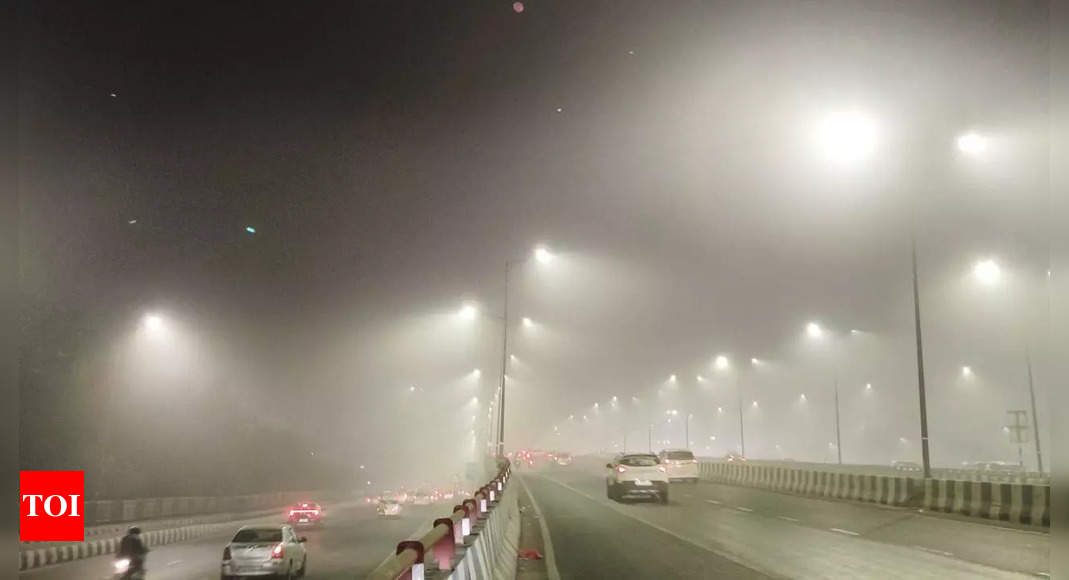
Shanghai experienced major flooding on Friday after Typhoon Pulasan made landfall, just as the city was recovering from the strongest storm it had faced in 75 years, Typhoon Bebinca. Pulasan made landfall in the Fengxian district Thursday night, bringing wind speeds of 23 metres per second (83 kilometres per hour), according to state-run Xinhua news agency.
While the storm is expected to weaken as it moves inland, heavy rain continued to affect the city on Friday morning.Videos on social media showed residents walking through calf-deep water in various neighbourhoods, but there have been no reports of severe damage or injuries.
State-owned Shanghai Media Group released footage showing police in high-visibility raincoats pushing a stranded car through floodwaters while a rider in a raincoat navigated a flooded intersection. Reports indicate that about a dozen cars were left stranded in the area.
By around 11am, many of the flooded areas had been cleared and dried, AFP reported. Parts of the city had raised their typhoon alert levels in anticipation of the storm.
Bebinca toppled over 1,800 trees and left 30,000 households without power and destruction was caused in parts of Shanghai earlier this week.
Scientists warn that climate change, driven by greenhouse gas emissions, is leading to more frequent and severe extreme weather events.
While the storm is expected to weaken as it moves inland, heavy rain continued to affect the city on Friday morning.Videos on social media showed residents walking through calf-deep water in various neighbourhoods, but there have been no reports of severe damage or injuries.
State-owned Shanghai Media Group released footage showing police in high-visibility raincoats pushing a stranded car through floodwaters while a rider in a raincoat navigated a flooded intersection. Reports indicate that about a dozen cars were left stranded in the area.
By around 11am, many of the flooded areas had been cleared and dried, AFP reported. Parts of the city had raised their typhoon alert levels in anticipation of the storm.
Bebinca toppled over 1,800 trees and left 30,000 households without power and destruction was caused in parts of Shanghai earlier this week.
Scientists warn that climate change, driven by greenhouse gas emissions, is leading to more frequent and severe extreme weather events.









